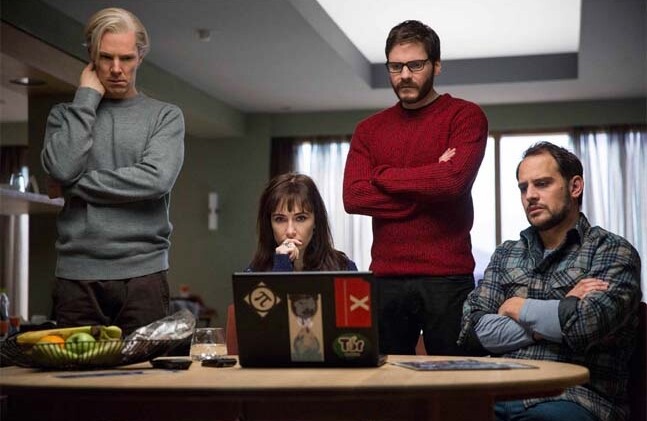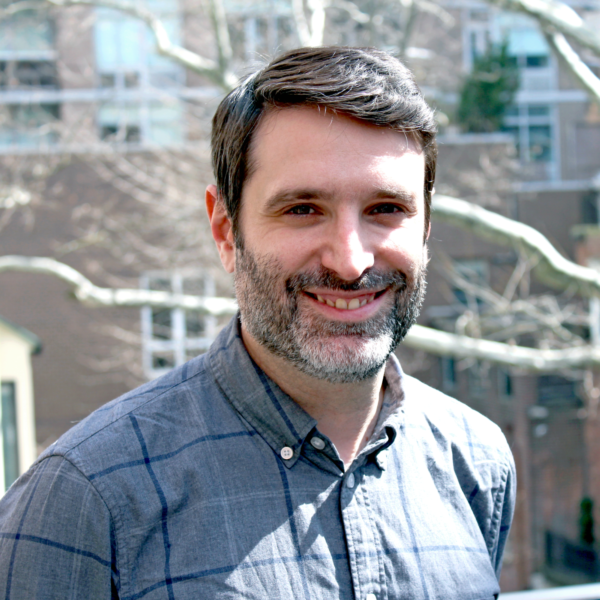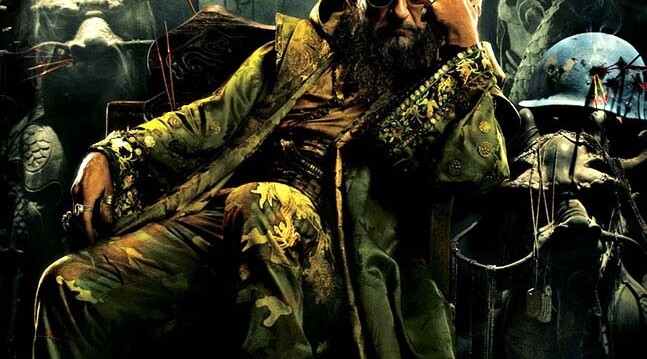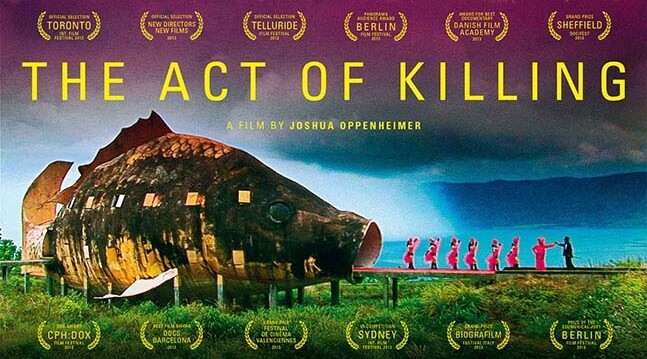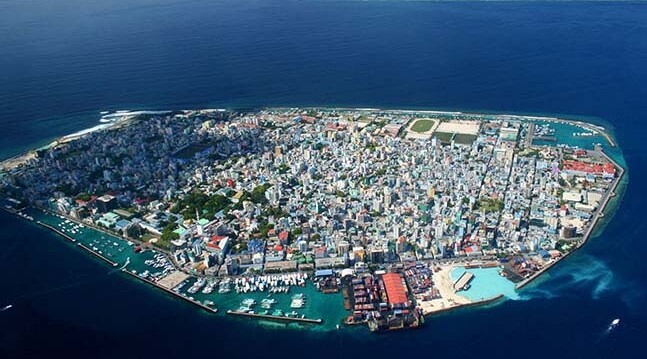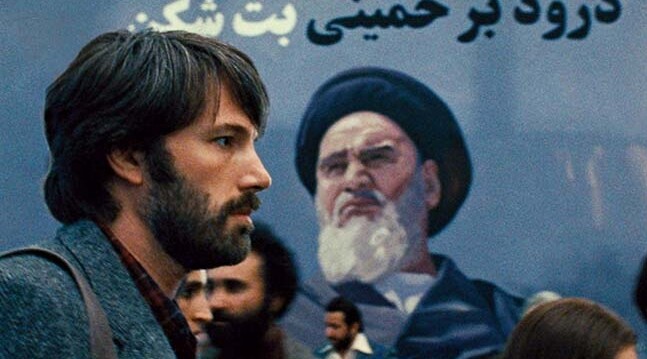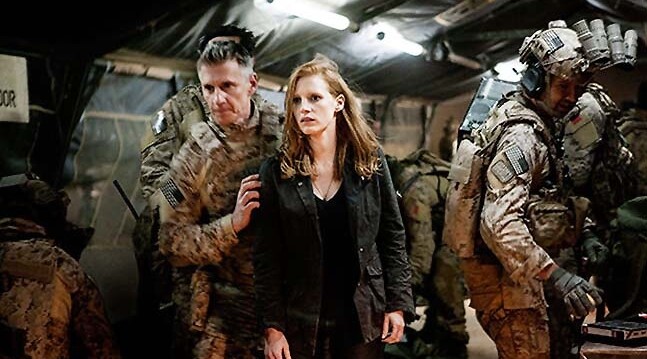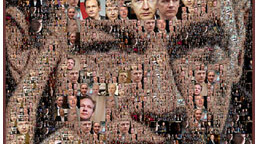The Fifth Estate, a Bill Condon-directed/Josh Singer-written feature about Julian Assange (Benedict Cumberbatch) and his Wikileaks organization, was always going to be a tough sell for American audiences. The film's main character has a reputation as a virulent anti-American. The action takes place in cyberspace, cafes, government offices, and newsrooms. And as the Wikileaks story is very much ongoing, the film doesn't have a defined beginning or ending; the audience just floats in and out of five pivotal years in Assange's life as he traverses Europe in search of corporate and political secrets, places to hide his servers, and volunteers for his cause. So, somewhat predictably, with an awful opening weekend and not even $9 million in box office revenues six weeks after its release, the film is arguably the biggest bomb of the year in the United States.
Synopsis
The entry point into the story is when Assange meets Daniel Domscheit-Berg (Daniel Brühl), a German technology activist enamored with Wikleaks, at a hacker conference in Berlin. The two strike up an uneven partnership, with the German volunteering as the Australian's spokesperson, errand boy, sounding board, and, sometimes and mostly unsuccessfully, his conscience. Over the course of a few years, Wikileaks grows in stature, leaking sensitive information about private Swiss bank Julius Baer, the far-right British National Party, and U.S. politician Sarah Palin. Eventually, via U.S. Army soldier Bradley Manning, Assange gains possession of hundreds of thousands of American diplomatic cables and various other sensitive documents pertaining to the wars in Iraq and Afghanistan.
The Manning leak, along with personal differences pertaining to hair dye, a cat, and a factually incorrect Wired article, eventually drives Assange and Domscheit-Berg apart. No longer enamored with his one-time idol, Domscheit-Berg tries to convince Assange to redact sensitive names from the Manning cables as editors from The Guardian, The New York Times, and Der Spiegel are set to publish select, scrubbed information. Assange, though he promised the editors otherwise, refuses to relent and Domscheit-Berg, along with two other volunteers, disables the Wikileaks website. Eventually (and off-camera) the German writes a book decrying the organization, which is one of the main texts that the film is based on. The next couple of years, including Assange's alleged sexual misconduct in Sweden and his subsequent exile in the Ecuadorian embassy in London, are wrapped up with a written epilogue. As the credits roll, Cumberbatch's Assange cackles to an unseen interviewer that the film that has just played is inaccurate and that hiring Domscheit-Berg was a mistake.
The Saga of Assange
At the center of Wikileaks and The Fifth Estate is the morally questionable, undeniably brilliant, always commanding, possibly slightly autistic character of Julian Assange. English actor Cumberbatch, best known for playing the title character in the BBC's Sherlock and evil genius Khan in the latest Star Trek, is definitely up to the challenge. But for most of the film, Assange is too busy furiously tapping at a laptop keyboard, traveling through wintry European cities, berating Domscheit-Berg, and tossing off one-liners like "Courage is contagious" to allow his twisted charisma to shine through. Condon seems to take it for granted that the audience already knows Assange. For example, Domscheit-Berg, showcased as a handsome, clever young professional with a spacious apartment and a girlfriend who cooks him cous-cous, is far from the prototypical hacker nerd who lives in his parents' basement. Yet, Assange instantly reduces him to a grinning fanboy. Why? Forgetting what we've learned about Assange through New York Times articles and ABC interviews, where does this power come from? How does he compel the Julius Baer whistleblower or Manning to part with such dangerous secrets?
Of course, Assange himself had his own issues with Cumberbatch's performance. In a widely circulated letter to the actor posted on Wikileaks, Assange questions the actor's decision. He tells Cumberbatch: "[The film] is based on a deceitful book by someone who has a vendetta against me and my organization" and "You will be used, as a hired gun, to assume the appearance of the truth in order to assassinate it. To present me as someone morally compromised and to place me in a falsified history. To create a work, not of fiction, but of debased truth." Cumberbatch has responded saying that Assange's letter did affect his performance and that he hopes the film starts a conversation about the activist and his group.
Cumberbatch's sympathy, to his and Condon's credit, does shine through in the performance. It would have been easy to pit the gentle, bearded hero of Domscheit-Berg against the caustic, white-haired villain of Assange, but the film makes the relationship much more complex, and therefore realistic. Domscheit-Berg is easily manipulated and almost stumbles into the role of one of history's greatest whistleblower-facilitators. Assange, though he is not a nice dinner party guest, is as firm in his convictions and self-belief in 2007 when he gives an earnest lecture to a near-empty auditorium, as he is in late 2010, when the world's most powerful journalists and transnational spies are breathing down his neck. In one scene, Assange concedes to Domscheit-Berg that he may be on the autism spectrum. This makes it clear that, while the other Wikileaks volunteers can compartmentalize their lives, Assange's life is Wikileaks. Seen through this prism, Assange's iron grip on the organization and his unwillingness to compromise in the face of The Guardian or the American government makes perfect sense.
Still, the question has to be asked: What are Assange's motives behind creating Wikileaks? Of course, his answer has been that it is to hold the powerful to account, make sure that governments and corporations are transparent, and to shed a light on innocent lives lost to needless wars. This still doesn't explain why Assange has to be such a visible face for the organization. Part of it is certainly the fact that his look and image are so striking that it can't help but get more publicity for Wikileaks and deflect some of the pressure on the whistleblowers. The film shows Assange stressing about how to get more press for the organization and finally deciding to collaborate with the mainstream media. It's not immediately clear how much Assange likes being a celebrity, though. And it is probably unfair to expect the film to answer this question. Assange has been hacking high-security websites for so long (he hacked into the Pentagon in the early 90s) and spreading his mantra of transparency so absolutely that he probably is not even sure of the line between his love of celebrity and pursuit of activism. But he is also shown to be so self-involved that he almost cannot fathom how damaging it could be to release the names of government informants in Libya, Azerbaijan, or other oppressive states.
Accuracy and Ambiguity
As is the case with any film that deals with a historical event, there have been many questions about the accuracy and intent of The Fifth Estate. What makes these questions even tougher in this instance is that there is no one accepted narrative for the Wikileaks story. Domscheit-Berg, Assange, the various editors, the U.S. government, and everyone else involved have different ideas about how the episode played out. In recent films like Argo, Zero Dark Thirty, and Lincoln, the stories were mostly a matter of historical record. It was clear what was cut out and added to the narrative and who were the real characters and who were the composites. For Wikileaks, though, the only two people who (probably) know the real story—Assange and Domscheit-Berg—cannot agree on the true version. Making this even more difficult, Assange refused to meet with Cumberbatch, instead attacking the Domscheit-Berg version of events from the Ecuadorian embassy and completely distancing himself from the film.
Put simply, the muddled characterization of Assange combined with the questions about the actual timeline and story of Wikileaks leads to a film that is too ambiguous to be a satisfying popular movie. Of course, the story that it is telling exists in its own grey geopolitical area, so it might not be right to blame all of this on the filmmakers. A storyline involving American State Department officials (Laura Linney, Stanley Tucci, and Anthony Mackie) further illustrates this ambiguousness. This tangent was seemingly supposed to show the other side of the Manning leaks—the diplomatic workers and sources whose lives were thrown into disarray because of Wikileaks—but, instead, the whole subplot feels underdeveloped and unnecessary. The characters are clearly composites and, with so little screen time allotted to them, the audience never gets emotionally invested in their stories. We see them panicking over the leaks and making frantic satellite phone calls to their sources, but, after the leaks are published, the story stops. Just like Linney's Libyan informant who escapes Muammar Qadafi's thugs and sneaks into an uncertain future in Egypt, the audience is left asking, in relation to this plot point, "Okay, now what?"
On one hand, the filmmakers could be applauded for attempting nuance and not adding car chases, explosions, gratuitous sex, and torture scenes into the story (when they definitely could have found an excuse to add all of these elements). But on the other hand, should this film have been made in 2013? Assange's story certainly has more twists and turns, so the $28 million spent on The Fifth Estate might have gone to better use in five to ten years. Instead, the film is left with hackers typing feverishly at keyboards as its action sequences, an antagonistic protagonist as its main character, and story with no end in sight as its plot.
Ethical Issues and Discussion Questions
- Does The Fifth Estate portray Julian Assange fairly? Does it portray him too negatively or too positively?
- Should this film have been made without Assange's involvement?
- Were the Bradley Manning leaks ethically justifiable? Should the names on the diplomatic cables have been redacted?
- Was it wrong for The Guardian, The New York Times, and Der Spiegel to get involved with Wikileaks?
- How do Assange and Manning compare with Edward Snowden? Was Snowden's strategy more ethically justifiable?
- Should Assange be prosecuted by the United States government? Should any whistleblowers be punished?
- Does Assange's image overshadow the mission of the Wikileaks in a negative way? Would Wikileaks be better off with a more understated leader? Or has Assange's high profile brought much-needed publicity to the organization?
- Have the revelations from Wikileaks and Snowden been positive developments in the worlds of politics and international relations? Are average citizens in democracies like the United States better off knowing about the NSA's activities and what their diplomats are saying to each other?
- Have the Manning and Snowden leaks made it harder for government officials to do their jobs? If so, is that a bad thing?
- Is there anything that governments do that should be "top secret" or "classified"?
Selected Carnegie Council Resources
Weighing Privacy Against National Security The recent revelations that the NSA is collecting cell phone and Internet data from millions of Americans has left many asking questions. Is this action necessary for America's national security? Should concerns about consumers' rights to privacy be considered? (Global Ethics Corner, June 2013)
Ethics Matter: Jeremy Scahill on the World as a Battlefield Jeremy Scahill, The Nation; Marlene Spoerri, Carnegie Council In the name of the "war on terror," the U.S. is conducting covert warfare and targeted killings, and it dismisses the resulting deaths of innocent civilians as "collateral damage." What are the ethical and practical repercussions of these policies? Jeremy Scahill's blistering talk ranges from Iraq to Afghanistan, Yemen, and Somalia. (Ethics Matter, June 2013)
The Leaderless Revolution: How Ordinary People Will Take Power and Change Politics in the 21st Century Carne Ross, Independent Diplomat Countries the world over are suffering from a deficit of democracy, says Carne Ross, and it's not enough just to protest and/or tinker with the existing system. Radical change is needed. We, the people, must take on the burden of governing ourselves. (Public Affairs, June 2012)
One Nation Under Surveillance: A New Social Contract to Defend Freedom Without Sacrificing Liberty Simon Chesterman, National University of Singapore The boundaries between public and private are crumbling fast, often with the active or passive consent of those whose privacy is breached. What limits, if any, should be placed on a government's efforts to spy on its citizens in the name of national security? (Public Affairs, April 2011)
